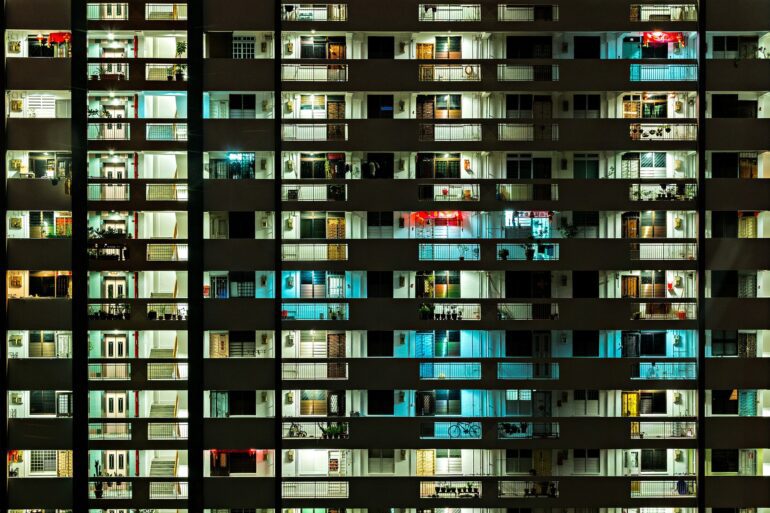TL;DR:
- More buildings in Singapore are adopting smart systems with AI and sensors to optimize utility management and reduce costs.
- These systems contribute to sustainability efforts by promoting green practices within buildings.
- Facilities management application developers are experiencing increased demand, indicating the growing adoption of smart systems.
- The Floravale condominium showcases the benefits of a smart facility management system, including streamlined visitor registration and cost savings through reduced manpower.
- Fu Yu Corporation, a plastic products manufacturer, utilizes a similar platform to enhance resource management and improve energy efficiency.
- The integration of AI and smart systems in the built sector aligns with Singapore’s goal of achieving net-zero emissions by 2050.
Main AI News:
Singapore is witnessing a growing trend in the adoption of smart systems equipped with sensors and artificial intelligence (AI) to effectively manage utilities and reduce manpower costs. With the rising expenses faced by building owners and managers, these intelligent facilities management systems are proving to be instrumental in optimizing operations while embracing sustainability measures.
One notable developer of facilities management applications reported a remarkable increase of one-third in uptake compared to the previous year. This surge in demand is driven by the efficiency and cost-saving benefits offered by these advanced systems. The Floravale condominium, located on Westwood Avenue, serves as a prime example. By leveraging a smart facility management system, visitors can simply drive to the gantry and scan a unique QR code for seamless entry. This eliminates the need for traditional sign-in procedures at the guardhouse, as all registrations are conveniently conducted online beforehand.
Floravale’s managing agent, Mr. Teo Poh Siang, highlighted the significant reduction in manpower costs resulting from this technological integration. He stated, “We have actually cut down one security officer, and one security officer costs almost S$5,000 per month. So over a year, it’s about S$50,000 to S$60,000.” The transition to digital processes at the condominium, initiated approximately two years ago, has not only alleviated administrative burdens but also empowered residents to conveniently make payments and report maintenance issues with ease. Future plans include the implementation of sensor-based monitoring to ensure water quality in the swimming pool.
Qornerstone, a leading property technology firm, developed the smart facility management system deployed at The Floravale. This innovative solution has enabled the management team to maintain lean operations with only five workers responsible for the entire 754-unit property. Ernest Ong, CEO of Qornerstone, emphasized the manpower-intensive nature of the built environment industry, stating, “So due to cost pressure, that is where the industry has no choice but to look into transformation by technology means.“
Another example showcasing the efficacy of these intelligent systems is Fu Yu Corporation, a prominent plastic products manufacturer. The company utilizes a similar platform provided by Cerexio, a software solutions provider, to manage its resources effectively. This includes real-time monitoring of room temperatures and remote control of light switches through sensors. Beyond energy optimization, the smart system has led to a significant reduction in man-hours, benefiting various operational aspects such as data management and financial processes. Fu Yu Corporation plans to expand the implementation of this system across other areas as part of its commitment to environmental sustainability.
David Seow, Group CEO of Fu Yu Corporation, expressed their dedication to sustainability goals, stating, “We’ve got six plants in Asia, and one of our key focuses is sustainability. So we have pledged to reduce our energy usage by 30 percent. And what goes into this 30 percent most is reducing raw material wastage, reducing water usage as well as electricity. So by using this system, it definitely allows us to turbocharge our process into this initiative.”
Embracing digital transformation in the built sector, smart facilities management systems are integral to Singapore’s pursuit of a sustainable future. To support this transition, government grants are available, encouraging organizations to adopt these advanced technologies. Cerexio’s CEO, S. Gowrishankar, emphasized the urgency of achieving Singapore’s net-zero emissions target by 2050, stating, “Because of the 2050 initiative, they have to be carbon neutral, and a lot of organizations are actually working towards that and to achieve that goal.”
Conclusion:
The widespread implementation of AI and smart systems in Singapore’s building sector signifies a significant shift toward efficiency, sustainability, and cost reduction. The adoption of these technologies not only streamlines operations but also addresses the increasing need to manage utilities effectively while minimizing manpower costs. With government grants available to support this transition, the market for smart facilities management systems is poised for growth. As more buildings and organizations embrace digital transformation, they will contribute to Singapore’s journey towards a greener and carbon-neutral future, reinforcing the market’s potential for innovative solutions and advancements in building efficiency.

